New York, May 26 (PTI) As Prime Minister Narendra Modi- led government marks its first year in office today, American media has taken a critical view of his accomplishments, saying his flagship ‘Make in India’ drive is “so far mostly hype”, job growth remains sluggish amid “outsize expectations”.
“India’s Modi at One Year: ‘Euphoria Phase’ Is Over, Challenges Loom,” reads a headline in the Wall Street Journal of an article on Modi’s first year as Indian Prime Minister.
“A year after Indian voters handed Narendra Modi a once-in-a-generation mandate for change and economic revival, messy realities are sinking in,” the WSJ report said.
It said that Modi’s ‘Make in India’ drive, aimed at supercharging manufacturing growth, “is so far mostly hype”.
It cited economic parameters like exports to say that the “economy is merely limping along”.
Inflation-adjusted lending for capital investment last year fell to a level not seen since 2004, it said adding that exports were down for the fifth straight month in April, corporate earnings were dismal and foreign institutional investors have pulled around USD 2 billion out of Indian stocks and bonds in May so far.
The New York Times, in a news analysis, said Modi must face the reality that much of his agenda is still only potential.
“From abroad, India is now seen as a bright spot, expected to pass China this year to become the world’s fastest-growing large economy. But at home, job growth remains sluggish. Businesses are in wait-and-see mode. And Modi has political vulnerabilities, as parliamentary opposition leaders block two of his central reform initiatives and brand him ‘anti-poor’ and ‘anti-farmer’,” the NYT article titled ‘After a Year of Outsize Expectations, Modi Adjusts His Political Course for India’ said.
It said “most formidable of all is a problem” Modi has “made for himself: outsize expectations that he would sweep away constraints to growth in India, like stringent laws governing labour and land acquisition.
The NYT quoted senior vice president at leading Indian garment exporter Orient Craft’s Vimarsh Razdan as saying that the Modi government’s “image became larger than they themselves.
“They have become superheroes. And everyone knows superheroes don’t exist,” he said in the report.
The WSJ article said that while Modi has swaggered across stages from New York to Paris to Sydney, helping put the country back on investors’ maps, “on other key fronts, Modi has moved less decisively, frustrating investors who hoped for bolder change after last year’s election.”?
His government has avoided privatising state-run banks and companies, which could trigger unpopular job cuts.
Despite vows to improve India’s reputation for unpredictable tax collection, the government has hit investors with demands for back taxes they say they should not have to pay, it said.
The Gujjars had yesterday threatened to intensify the agitation, which has mainly remained confined to Bharatpur and Dausa, and spread it across the state.
Meanwhile, there was a deadlock over the venue of next round of talks between Gujjars and the government after one round held in Bayana ended in a failure.
The government had asked Gujjar representatives to come to Jaipur on Monday to discuss the issue at length but their leader Kirori Singh Bainsla is adamant on holding the talks in Bayana only, which is nearly 15 kms away from Pilukapura where the community members have blocked the railway tracks.
Related
Floating Objects Over Mumbai Runway Were Promotional Balloons, 2 Detained for Negligence
IPL 8: Ponting Said it was Always About Winning, Says Harbhajan
AAP Says BJP Has Now Taken a U-Turn on Statehood for Delhi
“We will not go to Jaipur for the talks. We will hold talks in Bayana only. I have given a letter to the government for this,” Mr Bainsla told PTI.
The agitation, which was started on Thursday last week, would be called off only when the government fulfills the demand, he said.
“After discussion with our members, it was decided today to not go to Jaipur. We are open for the talks but we will not go to Jaipur, as proposed by the government, and any talk will take place in Bayana,” said Himmat Singh, spokesperson of the Gujjar Arakshan Sangharsh Samiti, yesterday.
District collector Ravi Jain said the Gujjars were being convinced to accept the government’s proposal to go to Jaipur.
“Jaipur is the right place to hold talks in detail and we are trying to persuade the Gujjars,” he said.
On the fifth day of the agitation, Delhi-Mumbai rail tracks in Bharatpur and a state highway in Sawaimadhopur continued to be blocked causing inconvenience to travellers.
Since the Gujjars relaunched their agitation after seven years on Thursday last, one round of talks took place on Saturday between the Gujjar leader Bainsla and a committee comprising Health minister Rajendra Rathore, Social Justice minister Arun Chaturvedi and Food minister Hem Singh Bhadana.
However, the meeting ended in a failure with Gujjars saying the government did not come up with any concrete proposal.
Himmat Singh, yesterday, alleged that the government was trying to build pressure on them. “My farmhouse in Dausa was today raided by several policemen. It is a pressure tactics used by the government,” he alleged.
Mr Bainsla, meanwhile, went to a hospital for a medical check up. The spokesperson said it was routine medical check up which was due.
Police have already booked Mr Bainsla and his supporters for rioting, sedition, damaging public property, endangering life, obstructing public way, criminal conspiracies in three cases lodged on May 21, the day when they started the agitation, and Sunday.
The state government once again asked the Gujjars to come to Jaipur for holding talks.
The committee of three ministers- Health minister Rajendra Rathore, Social Justice minister Arun Chaturvedi and Food and Civil Supply minister Hem Singh Bhadana met at the secretariat here and issued a fresh letter proposing the Gujjars to come to Jaipur, according to a government spokesperson.
Meanwhile, agitators captured Agra-Jaipur National Highway in Dausa again tonight and squatted there, forcing the authorities to divert the traffic through an alternate route.
“Gujjar protesters returned late in the evening and blocked the highway at Sikandra. The situation was tense in Sikandra but nothing violent happened. The agitators confronted the locals, who chased them away earlier in the day, but police force controlled the situation,” IG Jaipur, DC Jain told PTI.
Police, paramilitary forces have been deployed in the area to maintain law and order, he said, adding that the situation was tense but peaceful.
Mumbai, May 26 (PTI) The benchmark BSE Sensex today declined by another 112 points to close at over one-week low of 27,531.41 due to continued selling in heavyweights such as ITC, Tata Motors and Vedanta on muted earnings amid weakening rupee.
A cautious stance adopted by participants, who trimmed positions ahead of May derivatives expiry on Thursday, and absence of any positive trigger also dampened trading sentiments, brokers said.
At the forex market, the rupee was trading 42 paise down at Rs 63.99 against the American currency (intra-day).
Falling for the second day in a row, the 30-share Sensex closed down 112.47 points, or 0.41 per cent, at 27,531.41 — the lowest closing level since May 15. It touched a high of 27,675.94 and a low of 27,473.54 in day trade.
The 50-issue Nifty of NSE fell by 30.90 points, or 0.37 per cent, to 8,339.35 after hovering between 8,320.05 and 8,378.90 intra-day.
Vedanta Ltd plunged 2.33 per cent and was the biggest loser among Sensex scrips. ONGC fell sharply by 2.05 per cent.
Tata Motors fell by 1.60 per cent ahead of its January- March quarter earnings due later in the day.
ITC was down 1.05 per cent, sliding for the second session after disappointing earnings on Friday.
Sun Pharma, NTPC, Reliance, ICICI Bank, HDFC and Dr Reddy’s recorded losses up to 1.34 per cent.
FMCG major Nestle shares closed down 2.10 per cent after cracking over 6 per cent intra-day following reports that UP Food Safety and Drug Administration may file case against the company due to higher than permitted levels of lead and a food additive in Maggi noodles.
However, state-run BHEL emerged as top gainer among Sensex stocks by soaring 2.88 per cent even as it posted 52 per cent fall in net profit at Rs 888.35 crore for the quarter ended March 31, 2015
New Delhi, May 26 (PTI) Andhra Pradesh continued to bear the brunt of intense heat wave that has been sweeping many parts of the country with as many as 149 people dying because of it in the state since yesterday, raising to nearly 700 the overall toll in various states.
Sweltering conditions persisted in Delhi as also other states like Telangana, Maharashtra, Rajasthan, Uttar Pradesh, Punjab, Haryana, Madhya Pradesh, Odisha and West Bengal with temperature hovering around 45 degree celsius in most of these places.
According to Skymet, a private weather forecasting agency, Angul in Odisha recorded 47 degree, while Chandrapur and Wardha in Maharashtra witnessed 46.6 and 46.5 degrees, respectively.
Delhi recorded 45 degree celsius, 0.5 degrees less than yesterday which was the hottest day.
There could be some respite from the sweltering heat as some parts of north and south India are expected to experience thunder storm in next two days, thus bringing down the temperature by a few notches.
Kashmir Valley, on the other hand, is witnessing pleasant weather with maximum temperature around 22 degree celsius.
Meanwhile, Andhra Pradesh saw the death of 149 people since yesterday, raising the toll in the state to 551. The number of deaths in the state till yesterday was 302.
The overall death toll in various parts of the country due to hot weather till yesterday stood at around 550 and with 149 more deaths since then, the number has gone up to 699.
The scorching weather claimed 104 lives in Guntur district of Andhra Pradesh alone, Special Commissioner for Disaster Management Tulsi Rani said today.
Guntur was followed by East Godavari with 90 deaths, Vizianagaram with 84 deaths, Visakhapatnam 61 and Prakasam district 57, she told PTI. In other districts, the death toll varied between 8 and 36.
According to the Meteorological department, heatwave conditions will prevail in several parts of the state.
New Delhi, May 26 (PTI) Yet another book has come out damming the previous UPA government with former TRAI Chairman Pradip Baijal alleging that the then Prime Minister Manmohan Singh had warned him of harm if he did not cooperate on 2G telecom licenses.
An accused in the 2G spectrum allocation scam case, he also claimed that the CBI wanted him to “implicate” Arun Shourie and Ratan Tata in the case.
In his self-published book, “The Complete Story of Indian Reforms: 2G, Power and Private Enterprise – A Practitioner’s Diary’, Baijal, who was appointed head of the telecom watchdog by the NDA government in 2003, said the 2G scam trail began under UPA’s Telecom Minister Dayanidhi Maran regime.
“They (CBI) had warned me in each case that I would be harmed if I didn’t cooperate. Incidentally, this was exactly what the eminent economist Prime Minister had told me would happen if I did not cooperate in their scheme of things in the 2G case,” Baijal writes in an apparent reference to 2G case and disinvestment issues.
There were no immediate comments available from the former Prime Minister, while Baijal told PTI “I have said everything. It is 100 per cent correct and I have evidence to prove everything.”
This is the third book in last more than a year that has come to haunt Singh and his government about state of affairs during his regime. The first book was written by his aide and media advisor Sanjaya Baru and later by former coal secretary P C Parekh who is also an accused in the case relating to coal blocks allocation. .
New Delhi, May 25 (PTI) The Airports Authority of India (AAI) has again extended the deadline for submitting bids for control of four airports, further delaying their privatisation process.
The private players can now submit their applications for short-listing till July 1, the AAI said today.
The AAI, which invited ‘Request for Qualification (RFQ)’ to handover the management, operations and development of the state-controlled airports in Kolkata, Chennai, Ahmedabad and Jaipur last year, had earlier extended the date for submitting the bids from March 24 to May 26.
The government-run airports operator, however, did not specify the reason for extending the deadline further.
The AAI had last time pushed the date on the grounds that it wanted to sort out manpower related issues prior to transferring these airports, which have already seen a public investment of Rs 5,000 crore, to the domestic corporates.
“There are many issues. There are issues relating to human resources. A concerted decision has to be taken (on such issues). Whatever are the concerns of the employees, they have to be addressed,” Airports Authority of India chairman R K Srivastava had said, while justifying the decision to extend the deadline earlier.
AAI employees union, however, is opposed to privatisation on the ground handing over these airports, after the two highest revenue-generating airports in Delhi and Mumbai, to the private sector would not only recede AAI’s topline but also lead to massive lay-offs.
Domestic corporates including Tata and Adani groups, existing airport operators GMR and GVK groups as well as Siemens Postal Parcel and Airport Logistics Private Limited, International Business Development Flughafen, Zurich, Flemingo Duty Free Shop Pvt Ltd and Cochin International Airport have shown interest in the these airports following the RFQ.
Mathematician John Nash, a Nobel Prize winner whose longtime struggle with mental illness inspired the movie “A Beautiful Mind”, was killed in a car crash along with his wife in New Jersey, state police said on Sunday.
The couple were in a taxi when the driver lost control, crashed into a guard rail and hit another car on Saturday afternoon on the New Jersey Turnpike, said police.
John Nash, 86, and his wife, Alicia, 82, were thrown from the taxi and pronounced dead at the scene, New Jersey State Police spokesman Sgt. Gregory Williams added, declining to comment on media reports that they were not wearing seat belts.
Russell Crowe, who portrayed Nash in the Oscar-winning movie, said on Twitter that he was stunned by the deaths. “An amazing partnership. Beautiful minds, beautiful hearts,” the Hollywood star wrote.
The taxi driver was taken to hospital with non-life threatening injuries and the driver of the other vehicle was also treated in hospital, police said. No charges had been filed, Williams added.
Nash was awarded the Nobel Prize for economics in 1994 for his work on game theory and the mathematics of decision-making.
The film “A Beautiful Mind” was loosely based on his battle with schizophrenia.
Nash received his Ph.D. from Princeton in 1950 and spent much of his career there and at the Massachusetts Institute of Technology (MIT).
He began experiencing what he described as “mental disturbances” in 1959 after marrying Alicia, a MIT physics major who was then pregnant, according to his biography on the Nobel Prize website.
“I was disturbed in this way for a very long period of time, like 25 years,” Nash said in a 2004 video interview on the Nobel website.
He stressed that his was an unusual case, as he was able eventually stop taking medication and return to normal activities and his research.
The 2001 movie represented an “artistic” take on his experience, giving insight into mental illness but not accurately portraying the nature of his delusions, Nash said in the interview.
“John’s remarkable achievements inspired generations of mathematicians, economists and scientists who were influenced by his brilliant, groundbreaking work in game theory,” Princeton University President Christopher Eisgruber said in a statement.
“The story of his life with Alicia moved millions of readers and moviegoers who marveled at their courage in the face of daunting challenges,” he added.
Nash and his wife were living in Princeton Junction, New Jersey, New Jersey police said.
New Delhi: Minority Affairs Minister Najma Heptulla has rejected the contention that Muslims are feeling insecure under the BJP-led regime and said the community has felt alienated since Independence because of the policies of successive Congress governments.
Muslims are alienated because they are economically and educationally backward. Now people are saying these utterances (against Muslims) are making them feel alienated.
“It is not that today Muslims are feeling alienated. Muslims have been feeling alienated since Independence, because they have been relegated to such backward situation,” Heptulla told PTI.
She was responding to a query whether objectionable comments and hate speeches by right wing elements were alienating the community under the Modi government.
“They were alienated already, relegated into backward situation, because they were educationally and economically alienated and social alienation is linked to it. This is the genesis of the whole situation. You just don’t feel alienated that somebody made a statement,” she asserted.
Attacking the Congress, the Minority Affairs Minister said in its successive regimes, the party only lent “vocal support” to Muslims while the present government has put things into motion through policy initiatives and programmes.
The Minister, however, refused to react specifically to objectionable utterances by some BJP leaders and ministers or the controversy surrounding ‘Ghar Wapsi’ programme and the ban on beef in some states.
She also dismissed a US religious panel report that communal atmosphere in India has been vitiated since the 2014 general elections, and said people sitting abroad are often far removed from reality.
“People sit somewhere and prepare reports. They don’t realise what kind of sensitive fabric Indian society is. In villages, Hindus and Muslims live together and for centuries.
“People who try to create dissent and divide in the country don’t understand… They sit abroad in America and make such reports,” she said.
PTI
Kathmandu, May 25 (PTI) Two tremors today struck Nepal, keeping people on the edge as the country struggled to rehabilitate millions of people affected by a devastating earthquake one month ago that killed nearly 9,000 people.
A 5.0-magnitude tremor was felt at 3.23 am with epicentre at Gorkha district.
Another 4.1-magnitude earthquake hit western Nepal with epicentre at Dolakhan.
A 7.9-magnitude earthquake on April 25 killed nearly 9,000 people and injured thousands more. It was followed by a 7.3-magnitude quake on May 12 and about 265 aftershocks.
For families across Nepal who have been left homeless, the aftershock damaged their hopes of piecing their lives together anytime soon. Beyond the physical damage, uncertainty about the future unsettles millions of Nepalese.
The annual monsoon rains are due to begin in a month.
Families living on precarious hill slopes under tarpaulin sheets fear that landslides triggered by rain and earthquake will cause more havoc.
More than half a million buildings were destroyed in the April 25 quake and aid agencies say they are yet to reach some people in very remote community’s affected by the disaster.
The Nepalese government estimates it will cost more than USD 10 billion for the country to rebuild, a third of the nation’s GDP.
Prime Minister Sushil Koirala is likely to visit India soon to discuss long-term plans on rehabilitation and reconstruction.
Minister for Foreign Affairs Mahendra Bahadur Pandey yesterday briefed Kathmandu-based Consul Generals on the scale of damage caused by the devastating earthquake and its aftershocks as well as on the measures taken by the government for relief, rehabilitation and reconstruction works.
He said that the government has set up the Reconstruction and Rehabilitation Fund with a target of collecting Rs 200 billion and has already transferred Rs 20 billion to the fund as seed money.
He also said that the funds required for rehabilitation and reconstruction could be much higher than the current estimates, according to the statement.
He asked the diplomats to communicate Nepalese government’s rehabilitation and reconstruction plans and initiatives to the governments they represent and play a proactive role in garnering more cooperation and support.
According to UNICEF, an estimated 70,000 children under five are at risk of malnutrition and require urgent humanitarian support.
Around 15,000 children in 14 of the worst-hit districts need therapeutic foods for the treatment of ‘severe acute’ malnutrition.
Additionally, some 55,000 children with ‘moderate acute’ malnutrition require supplementary feeding and care to bring them back to healthy growth and development.
Delhi chief minister Arvind Kejriwal and his ministers will hold a public meeting here on Monday to mark 100 days of the AAP government amid a row with the central government over a notification giving Lt. Governor Najeeb Jung all powers over transfers and posting of officials.
At a meeting of its legislators on Sunday, the Aam Aadmi Party described the home ministry notification of Thursday as “unconstitutional”, and the government has decided to call a special assembly session May 26-27 to discuss the central order.
AAP leader and former minister Saurabh Bhardwaj told mediapersons after the meeting that the central government was “shadow-boxing”.
“The notification that the central government has brought is not only unconstitutional, but it is against the basic principles of democracy,” he said.
The meeting was attended by Kejriwal and his deputy Manish Sisodia.
Added another AAP legislator Alka Lamba: “If the chief minister doesn’t have a right to appoint and suspend officials, then how is an elected government of Delhi supposed to fight corrupt officials?”
“After discussion (in the assembly), if needed, we will go to the court,” she said.
Read | AAP govt to lose control over anti-graft body, Kejriwal’s wing clipped
An official said the public meeting at central park in Connaught Place on Monday will highlight achievements of the AAP government.
AAP media coordinator Deepak Bajpai said the AAP government has delivered on its promises.
“The anti-corruption helpline is in place to check corruption. Party MLAs are reaching out to the people and solving their problems. We will tell the people about the work the government is doing,” he said.
AAP on Sunday also listed its achievements in a series of tweets — about the continuous supply of power despite acute summer, steps taken to fight pollution, opening of a water treatment plant at Dwarka and a move to issue stamp vendor licences online.
Read | Kejriwal vs Jung: Sisodia hits out at Centre on statehood issue
It said that in a bid to control price rise, the Delhi government plans to procure 10,000 tonnes of potatoes and onions through government agency NAFED.
It said it had provided relief to traders by allowing carry forward of refund of VAT and extending the date of filing R9 Form — a long-standing demand of the city’s trading community.
The government also said frequent checks were made on government hospitals, transport buses and bus stations in a bid to ensure that users got the services they deserved.
AAP leaders, who have accused Narendra Modi government of trying to run the Delhi government through proxy, continued to attack the central government over the notification and said the issue could come up in the public meeting on Monday.
Deputy chief minister Sisodia told NDTV in an interview on Sunday that the central government was trying to bulldoze the agenda of the Delhi government and was “allergic to Kejriwal”.
Read | Centre’s notification effectively makes Delhi govt powerless
He said the issues concerning the notification will “be resolved now” in the assembly.
Sisodia also took on the media saying the AAP government had been wrongly targeted on many counts.
“Criticism is fine but agenda-driven journalism is wrong,” he said. “Question us, criticise us, hang us if we are corrupt or wrong but don’t spread false rumours,” he said.
The “clarificatory” home ministry notification on Thursday came after days of intense wrangling between the Kejriwal government and L-G Jung over transfer and posting of senior officials.
It also took away powers of the anti-Corruption Branch (ACB) to prosecute “officers, employees and functionaries” of the central government.

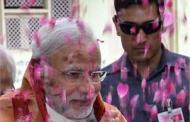
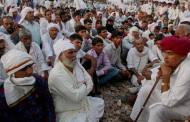

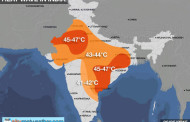
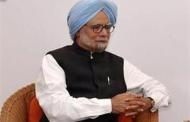


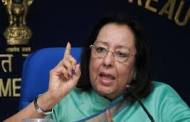
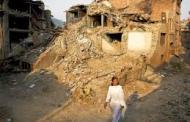
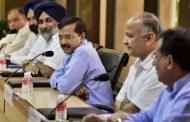





Recent Comments